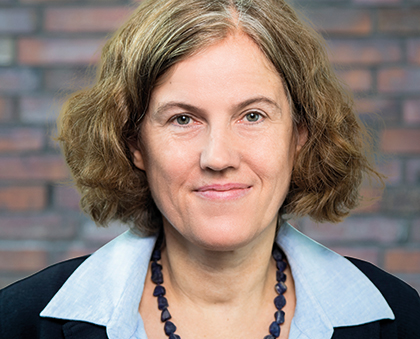DFG funds HITS research on SARS CoV-2 spike glycoprotein
The SARS-CoV2 virus is notorious for its characteristic spike protein that helps the virus to invade cells. Rebecca Wade and the Molecular and Cellular Modeling group at HITS use computational methods and simulations to investigate the mechanisms by which heparin and heparan sulfate proteoglycans interact with SARS-CoV-2 spike glycoprotein, and thereby affect host cell infection and host susceptibility. This research could impact the treatment of the viral infection because heparin is already used in the treatment of COVID-19 patients due to its anticoagulant properties and recent studies indicate the value of inhaled heparin for treating lung diseases.
The German Research Foundation (DFG) is funding this research in their COVID-19 Focus Funding scheme in the project “meCocan – Towards a mechanistic understanding of the interaction of SARS-CoV-2 spike glycoprotein and host heparan sulphate proteoglycans”. The project is being pursued in collaboration with Giulia Paiardi and Marco Rusnati (University of Brescia, Italy).
Press Contact:
Dr. Peter Saueressig
Head of Communications
HITS Heidelberg Institute for Theoretical Studies
Phone: +49-6221-533-245
peter.saueressig@h-its.org
Scientific Contact:
Prof. Dr. Rebecca Wade
Molecular and Cellular Modeling Group (MCM)
Heidelberg Institute for Theoretical Studies (HITS)
Funded by the Deutsche Forschungsgemeinschaft (DFG, German Research Foundation) – Projektnummer(458623378).
About HITS
HITS, the Heidelberg Institute for Theoretical Studies, was established in 2010 by physicist and SAP co-founder Klaus Tschira (1940-2015) and the Klaus Tschira Foundation as a private, non-profit research institute. HITS conducts basic research in the natural, mathematical, and computer sciences. Major research directions include complex simulations across scales, making sense of data, and enabling science via computational research. Application areas range from molecular biology to astrophysics. An essential characteristic of the Institute is interdisciplinarity, implemented in numerous cross-group and cross-disciplinary projects. The base funding of HITS is provided by the Klaus Tschira Foundation.
